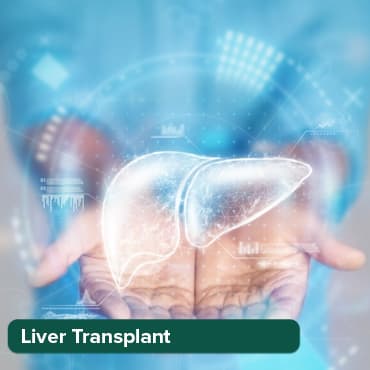
Burjeel Hospital's Endocrinology: Treating Conditions of the Endocrine System
14 Aug, 2023
The human body is a complex and intricately interconnected system, with various functions regulated by an equally intricate system of glands and hormones known as the endocrine system. This system plays a vital role in maintaining homeostasis, growth, metabolism, and reproduction. When the delicate balance of the endocrine system is disrupted, it can lead to a wide range of health issues. Burjeel Hospital's Endocrinology department is at the forefront of diagnosing and treating these conditions, offering comprehensive care to patients of all ages.
Understanding the Endocrine System:
Transform Your Beauty, Boost Your Confidence
Find the right cosmetic procedure for your needs.

We specialize in a wide range of cosmetic procedures

At the heart of the endocrine system are numerous glands scattered throughout the body, each responsible for producing specific hormones. These hormones act as messengers, travelling through the bloodstream to target organs and tissues, and regulating a variety of bodily functions. The key glands of the endocrine system include the pituitary gland, thyroid gland, adrenal glands, pancreas, ovaries, and testes.
The Crucial Role of Hormones:
Hormones are the chemical messengers that orchestrate the communication between different parts of the body. They influence growth, development, metabolism, mood, and many other physiological processes. Even the slightest disruption in hormone production or function can lead to profound health consequences.
Common Endocrine Disorders: Burjeel Hospital's Endocrinology department boasts a team of highly skilled specialists who are well-equipped to diagnose and manage a wide array of endocrine disorders. Some of the common conditions they specialise in treating include:
1. Diabetes Mellitus: One of the most prevalent endocrine disorders globally, diabetes mellitus is characterised by elevated blood sugar levels. The endocrinologists at Burjeel work closely with patients to develop personalised diabetes management plans. This can include lifestyle modifications, dietary changes, oral medications, and insulin therapy, all aimed at achieving optimal blood sugar control and preventing complications.
2. Thyroid Disorders: The thyroid gland plays a crucial role in regulating metabolism. Disorders such as hypothyroidism (underactive thyroid) and hyperthyroidism (overactive thyroid) can have profound effects on energy levels, weight, and overall well-being. The endocrinology specialists conduct thorough evaluations, including blood tests and imaging studies, to determine the underlying cause of thyroid dysfunction. This allows for precise treatment strategies, which may include medication, radioactive iodine therapy, or even surgical intervention.
Most popular procedures in India
Atrial septal defect
Upto 80% off
90% Rated
Satisfactory

Coronary Angiogram a
Upto 80% off
90% Rated
Satisfactory

Coronary Angiogram C
Upto 80% off
90% Rated
Satisfactory

Liver Transplant
Upto 80% off
90% Rated
Satisfactory

Total Hip Replacemen
Upto 80% off
90% Rated
Satisfactory

3. Adrenal Disorders: The adrenal glands produce hormones that control various bodily functions, including stress response, metabolism, and blood pressure regulation. Conditions such as Cushing's syndrome and Addison's disease can arise from adrenal gland dysfunction. The experts at Burjeel Hospital diagnose and manage these disorders through a combination of hormone replacement therapy, medications, and occasionally, surgery.
4. Pituitary Disorders: As the "master gland" of the endocrine system, the pituitary gland controls the function of other endocrine glands. Tumors and other abnormalities in the pituitary gland can lead to hormonal imbalances and diverse health issues. Through advanced imaging techniques and hormone level testing, Burjeel's specialists accurately diagnose pituitary disorders and recommend appropriate interventions, which may include medication or surgery.
5. Reproductive Hormone Disorders: Conditions such as polycystic ovary syndrome (PCOS) and male hypogonadism can have significant impacts on reproductive health. Burjeel Hospital's Endocrinology department provides comprehensive care for individuals dealing with fertility issues and hormonal imbalances that affect reproductive function. Treatment approaches may involve hormone therapy, lifestyle changes, and assisted reproductive techniques.
6. Bone and Calcium Disorders: Disorders like osteoporosis and hyperparathyroidism can lead to weakened bones and imbalances in calcium levels. These conditions can significantly impact mobility and overall quality of life. Burjeel's experts offer comprehensive management and treatment strategies to improve bone health, including dietary recommendations, exercise plans, and medication when necessary.
Comprehensive Approach to Care:
Burjeel Hospital's Endocrinology department takes a holistic and patient-centred approach to care, focusing on accurate diagnosis, personalised treatment plans, and ongoing support. Here's what sets their approach apart:
1. Advanced Diagnostics: The hospital employs cutting-edge diagnostic tools to uncover the underlying causes of endocrine disorders. From hormone level testing to advanced imaging studies, these diagnostics ensure precise and timely diagnosis.
2. Tailored Treatment Plans: Recognizing that each patient's condition is unique, Burjeel's endocrinologists collaborate with other medical specialists to develop comprehensive treatment plans. These plans not only address the hormonal imbalances but also consider the patient's overall health and well-being.
3. Lifestyle Modification: Many endocrine disorders can be effectively managed through lifestyle changes. The team at Burjeel provides guidance on dietary modifications, exercise regimens, and stress management techniques to complement medical interventions.
4. Medication and Hormone Replacement: When necessary, medication and hormone replacement therapy are administered with careful consideration. The specialists closely monitor patients' progress and adjust treatment plans as needed, ensuring optimal outcomes.
5. Surgical Expertise: In cases that require surgical intervention, Burjeel Hospital's skilled surgeons collaborate closely with endocrinologists to provide seamless care. Surgical options may include thyroidectomy, adrenal surgery, and pituitary tumor removal, among others.
Conclusion: Burjeel Hospital's Endocrinology department stands as a beacon of excellence in diagnosing and treating conditions of the endocrine system. With advanced diagnostics, personalised treatment plans, and a multidisciplinary approach, they ensure that each patient receives the highest level of care. Through their expertise, patients can regain hormonal balance, manage their conditions effectively, and ultimately enhance their overall quality of life. Burjeel's commitment to cutting-edge care underscores their dedication to helping patients lead healthier lives through the optimal functioning of their endocrine systems.
Wellness Treatment
Give yourself the time to relax
Lowest Prices Guaranteed!

Lowest Prices Guaranteed!





